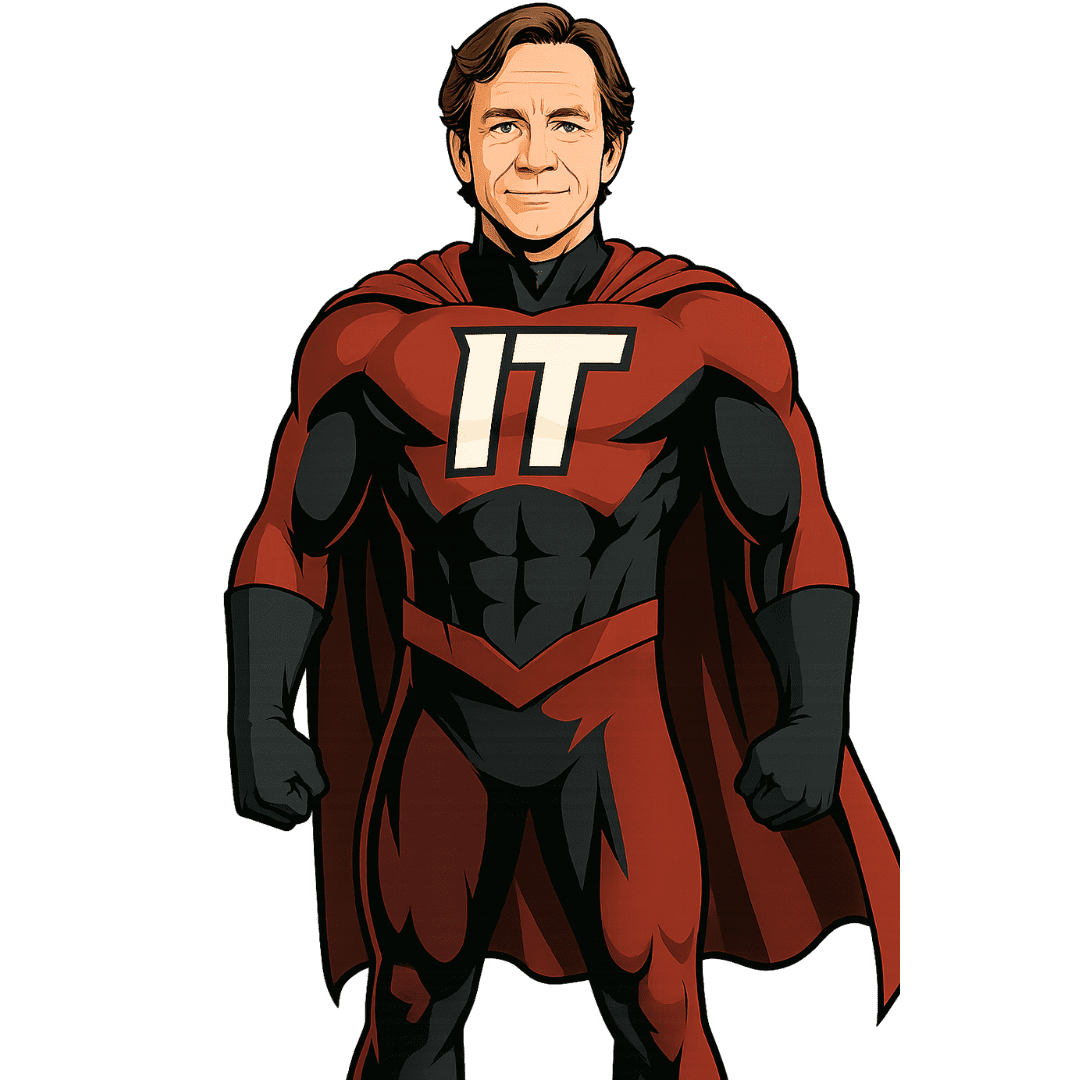In today’s tech-driven world, the term “hacker” carries varied meanings, often clouded by misconceptions. While hacking is often depicted as illicit or shady, not all hackers wear a black hat. In reality, hacking is a spectrum where individuals engage in activities with different motives, ranging from malicious intentions to protecting people from cyber threats. In this exploration, we’ll dive into the secret lives of hackers, examine the types of hackers out there—black, white, and grey hats—and shed light on how ethical hacking plays a crucial role in cybersecurity.
 The Dark Side: Black Hat Hackers
Black hat hackers are the villains of the cyber world. Known for their malicious intent, these hackers exploit vulnerabilities in computer systems for personal or financial gain, often disregarding the legality of their actions. Black hats engage in activities such as stealing sensitive data, deploying malware, and initiating ransomware attacks. They may sell stolen information on the dark web or hold systems hostage for a ransom.
One of the most infamous black hat hackers is Kevin Mitnick, who, in the 1990s, hacked into major corporations, stealing valuable data and costing companies millions. Though Mitnick later became a security consultant, his past remains a potent reminder of the risks black hat hackers pose. Their motives are rarely ethical and often stem from a desire for monetary gain, power, or simply the thrill of breaching security systems.
The Heroes: White Hat Hackers
On the other side of the spectrum, we have white hat hackers—often referred to as ethical hackers. These individuals use their skills to protect and secure networks, seeking vulnerabilities before black hats can exploit them. White hats are often employed by organizations to conduct penetration testing and vulnerability assessments, simulating cyberattacks to ensure systems are fortified against real threats.
One prominent example of ethical hacking is the work of companies like Google and Facebook, which offer “bug bounty” programs to reward individuals who identify and report security weaknesses in their platforms. By paying hackers for reporting bugs, these companies encourage hackers to act ethically, ultimately strengthening their security systems. White hat hackers, as cybersecurity defenders, play a critical role in safeguarding our digital infrastructure against cybercriminals.
Walking the Line: Grey Hat Hackers
Not all hackers fit neatly into black or white categories; this is where grey hat hackers come in. Grey hats operate in a middle ground where their actions may be unauthorized, yet not strictly malicious. They may breach systems without permission but don’t exploit the data for personal gain. Instead, grey hats often report the vulnerabilities to the affected companies, sometimes hoping for a reward or recognition, but without explicit malicious intent.
A famous grey hat example is the hacker group Anonymous, known for hacking government and corporate websites to promote social and political causes. While Anonymous’ actions often break laws, they’re typically aimed at raising awareness on specific issues rather than causing financial harm. Grey hat hackers operate with varied motives, and while their intentions may lean toward the ethical, they blur the lines of legality, making them unpredictable.
Why Ethical Hacking Matters
The battle between black and white hats underscores the importance of ethical hacking. As cyber threats evolve, organizations need proactive strategies to stay ahead of potential attackers. White hat hackers simulate attacks to uncover security gaps, ensuring robust defenses against black hat intrusions. Grey hats, too, play a role, as their activities often highlight overlooked vulnerabilities that can lead to improved security practices.
Ethical hacking isn’t just about preventing attacks; it’s about maintaining trust. At Kirkham IronTech, we emphasize proactive, multi-layered security approaches to help organizations keep their data and IT systems secure. Our commitment to cybersecurity aligns with the NIST Cybersecurity Framework, integrating pillars of governance, detection, and response to help businesses strengthen their infrastructure. We don’t just aim to manage IT infrastructure; we put security first, ensuring businesses can operate without fear of breaches.
Famous Hacks That Shaped Cybersecurity
Understanding hacking also requires looking at how famous incidents shaped the cybersecurity landscape:
The Dark Side: Black Hat Hackers
Black hat hackers are the villains of the cyber world. Known for their malicious intent, these hackers exploit vulnerabilities in computer systems for personal or financial gain, often disregarding the legality of their actions. Black hats engage in activities such as stealing sensitive data, deploying malware, and initiating ransomware attacks. They may sell stolen information on the dark web or hold systems hostage for a ransom.
One of the most infamous black hat hackers is Kevin Mitnick, who, in the 1990s, hacked into major corporations, stealing valuable data and costing companies millions. Though Mitnick later became a security consultant, his past remains a potent reminder of the risks black hat hackers pose. Their motives are rarely ethical and often stem from a desire for monetary gain, power, or simply the thrill of breaching security systems.
The Heroes: White Hat Hackers
On the other side of the spectrum, we have white hat hackers—often referred to as ethical hackers. These individuals use their skills to protect and secure networks, seeking vulnerabilities before black hats can exploit them. White hats are often employed by organizations to conduct penetration testing and vulnerability assessments, simulating cyberattacks to ensure systems are fortified against real threats.
One prominent example of ethical hacking is the work of companies like Google and Facebook, which offer “bug bounty” programs to reward individuals who identify and report security weaknesses in their platforms. By paying hackers for reporting bugs, these companies encourage hackers to act ethically, ultimately strengthening their security systems. White hat hackers, as cybersecurity defenders, play a critical role in safeguarding our digital infrastructure against cybercriminals.
Walking the Line: Grey Hat Hackers
Not all hackers fit neatly into black or white categories; this is where grey hat hackers come in. Grey hats operate in a middle ground where their actions may be unauthorized, yet not strictly malicious. They may breach systems without permission but don’t exploit the data for personal gain. Instead, grey hats often report the vulnerabilities to the affected companies, sometimes hoping for a reward or recognition, but without explicit malicious intent.
A famous grey hat example is the hacker group Anonymous, known for hacking government and corporate websites to promote social and political causes. While Anonymous’ actions often break laws, they’re typically aimed at raising awareness on specific issues rather than causing financial harm. Grey hat hackers operate with varied motives, and while their intentions may lean toward the ethical, they blur the lines of legality, making them unpredictable.
Why Ethical Hacking Matters
The battle between black and white hats underscores the importance of ethical hacking. As cyber threats evolve, organizations need proactive strategies to stay ahead of potential attackers. White hat hackers simulate attacks to uncover security gaps, ensuring robust defenses against black hat intrusions. Grey hats, too, play a role, as their activities often highlight overlooked vulnerabilities that can lead to improved security practices.
Ethical hacking isn’t just about preventing attacks; it’s about maintaining trust. At Kirkham IronTech, we emphasize proactive, multi-layered security approaches to help organizations keep their data and IT systems secure. Our commitment to cybersecurity aligns with the NIST Cybersecurity Framework, integrating pillars of governance, detection, and response to help businesses strengthen their infrastructure. We don’t just aim to manage IT infrastructure; we put security first, ensuring businesses can operate without fear of breaches.
Famous Hacks That Shaped Cybersecurity
Understanding hacking also requires looking at how famous incidents shaped the cybersecurity landscape:
 The Dark Side: Black Hat Hackers
Black hat hackers are the villains of the cyber world. Known for their malicious intent, these hackers exploit vulnerabilities in computer systems for personal or financial gain, often disregarding the legality of their actions. Black hats engage in activities such as stealing sensitive data, deploying malware, and initiating ransomware attacks. They may sell stolen information on the dark web or hold systems hostage for a ransom.
One of the most infamous black hat hackers is Kevin Mitnick, who, in the 1990s, hacked into major corporations, stealing valuable data and costing companies millions. Though Mitnick later became a security consultant, his past remains a potent reminder of the risks black hat hackers pose. Their motives are rarely ethical and often stem from a desire for monetary gain, power, or simply the thrill of breaching security systems.
The Heroes: White Hat Hackers
On the other side of the spectrum, we have white hat hackers—often referred to as ethical hackers. These individuals use their skills to protect and secure networks, seeking vulnerabilities before black hats can exploit them. White hats are often employed by organizations to conduct penetration testing and vulnerability assessments, simulating cyberattacks to ensure systems are fortified against real threats.
One prominent example of ethical hacking is the work of companies like Google and Facebook, which offer “bug bounty” programs to reward individuals who identify and report security weaknesses in their platforms. By paying hackers for reporting bugs, these companies encourage hackers to act ethically, ultimately strengthening their security systems. White hat hackers, as cybersecurity defenders, play a critical role in safeguarding our digital infrastructure against cybercriminals.
Walking the Line: Grey Hat Hackers
Not all hackers fit neatly into black or white categories; this is where grey hat hackers come in. Grey hats operate in a middle ground where their actions may be unauthorized, yet not strictly malicious. They may breach systems without permission but don’t exploit the data for personal gain. Instead, grey hats often report the vulnerabilities to the affected companies, sometimes hoping for a reward or recognition, but without explicit malicious intent.
A famous grey hat example is the hacker group Anonymous, known for hacking government and corporate websites to promote social and political causes. While Anonymous’ actions often break laws, they’re typically aimed at raising awareness on specific issues rather than causing financial harm. Grey hat hackers operate with varied motives, and while their intentions may lean toward the ethical, they blur the lines of legality, making them unpredictable.
Why Ethical Hacking Matters
The battle between black and white hats underscores the importance of ethical hacking. As cyber threats evolve, organizations need proactive strategies to stay ahead of potential attackers. White hat hackers simulate attacks to uncover security gaps, ensuring robust defenses against black hat intrusions. Grey hats, too, play a role, as their activities often highlight overlooked vulnerabilities that can lead to improved security practices.
Ethical hacking isn’t just about preventing attacks; it’s about maintaining trust. At Kirkham IronTech, we emphasize proactive, multi-layered security approaches to help organizations keep their data and IT systems secure. Our commitment to cybersecurity aligns with the NIST Cybersecurity Framework, integrating pillars of governance, detection, and response to help businesses strengthen their infrastructure. We don’t just aim to manage IT infrastructure; we put security first, ensuring businesses can operate without fear of breaches.
Famous Hacks That Shaped Cybersecurity
Understanding hacking also requires looking at how famous incidents shaped the cybersecurity landscape:
The Dark Side: Black Hat Hackers
Black hat hackers are the villains of the cyber world. Known for their malicious intent, these hackers exploit vulnerabilities in computer systems for personal or financial gain, often disregarding the legality of their actions. Black hats engage in activities such as stealing sensitive data, deploying malware, and initiating ransomware attacks. They may sell stolen information on the dark web or hold systems hostage for a ransom.
One of the most infamous black hat hackers is Kevin Mitnick, who, in the 1990s, hacked into major corporations, stealing valuable data and costing companies millions. Though Mitnick later became a security consultant, his past remains a potent reminder of the risks black hat hackers pose. Their motives are rarely ethical and often stem from a desire for monetary gain, power, or simply the thrill of breaching security systems.
The Heroes: White Hat Hackers
On the other side of the spectrum, we have white hat hackers—often referred to as ethical hackers. These individuals use their skills to protect and secure networks, seeking vulnerabilities before black hats can exploit them. White hats are often employed by organizations to conduct penetration testing and vulnerability assessments, simulating cyberattacks to ensure systems are fortified against real threats.
One prominent example of ethical hacking is the work of companies like Google and Facebook, which offer “bug bounty” programs to reward individuals who identify and report security weaknesses in their platforms. By paying hackers for reporting bugs, these companies encourage hackers to act ethically, ultimately strengthening their security systems. White hat hackers, as cybersecurity defenders, play a critical role in safeguarding our digital infrastructure against cybercriminals.
Walking the Line: Grey Hat Hackers
Not all hackers fit neatly into black or white categories; this is where grey hat hackers come in. Grey hats operate in a middle ground where their actions may be unauthorized, yet not strictly malicious. They may breach systems without permission but don’t exploit the data for personal gain. Instead, grey hats often report the vulnerabilities to the affected companies, sometimes hoping for a reward or recognition, but without explicit malicious intent.
A famous grey hat example is the hacker group Anonymous, known for hacking government and corporate websites to promote social and political causes. While Anonymous’ actions often break laws, they’re typically aimed at raising awareness on specific issues rather than causing financial harm. Grey hat hackers operate with varied motives, and while their intentions may lean toward the ethical, they blur the lines of legality, making them unpredictable.
Why Ethical Hacking Matters
The battle between black and white hats underscores the importance of ethical hacking. As cyber threats evolve, organizations need proactive strategies to stay ahead of potential attackers. White hat hackers simulate attacks to uncover security gaps, ensuring robust defenses against black hat intrusions. Grey hats, too, play a role, as their activities often highlight overlooked vulnerabilities that can lead to improved security practices.
Ethical hacking isn’t just about preventing attacks; it’s about maintaining trust. At Kirkham IronTech, we emphasize proactive, multi-layered security approaches to help organizations keep their data and IT systems secure. Our commitment to cybersecurity aligns with the NIST Cybersecurity Framework, integrating pillars of governance, detection, and response to help businesses strengthen their infrastructure. We don’t just aim to manage IT infrastructure; we put security first, ensuring businesses can operate without fear of breaches.
Famous Hacks That Shaped Cybersecurity
Understanding hacking also requires looking at how famous incidents shaped the cybersecurity landscape:
- The Sony Pictures Hack (2014): Initiated by black hat hackers, this attack involved the theft of sensitive employee data and unreleased films. This breach highlighted the importance of data encryption and crisis management for corporations.
- Operation Aurora (2009): Targeting Google and other tech giants, this sophisticated hack by state-sponsored actors underscored the need for robust security practices across multinational companies.
- Wannacry Ransomware Attack (2017): One of the largest ransomware attacks in history, Wannacry targeted vulnerabilities in outdated Windows systems, affecting numerous industries worldwide. This incident emphasized the importance of regular software updates and incident response planning.

 Tom Kirkham brings more than three decades of software design, network administration, and cybersecurity knowledge to organizations around the country. During his career, Tom has received multiple software design awards and founded other acclaimed technology businesses.
Tom Kirkham brings more than three decades of software design, network administration, and cybersecurity knowledge to organizations around the country. During his career, Tom has received multiple software design awards and founded other acclaimed technology businesses.
